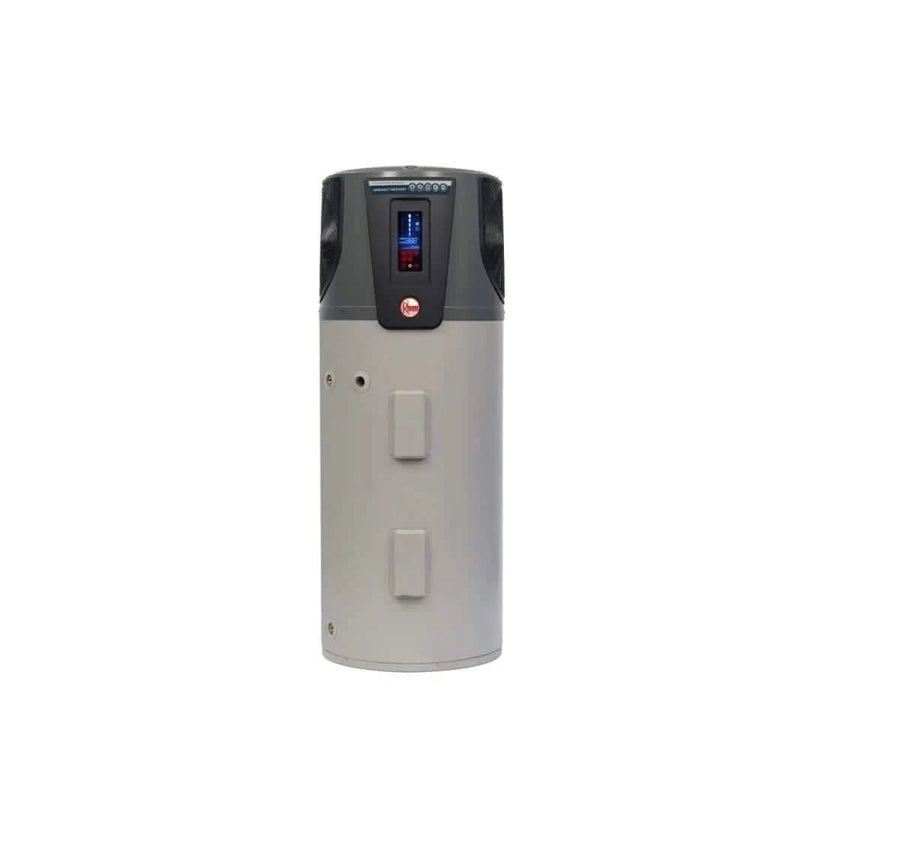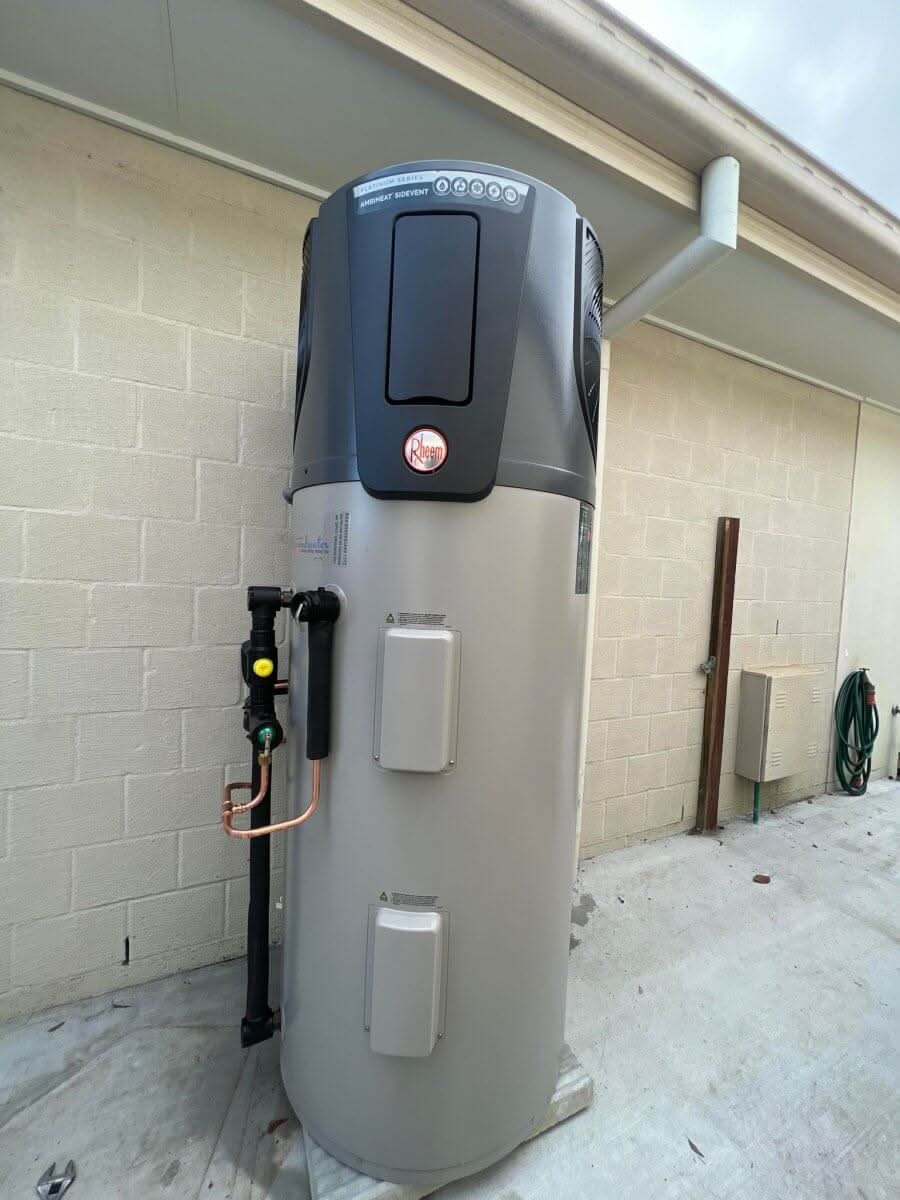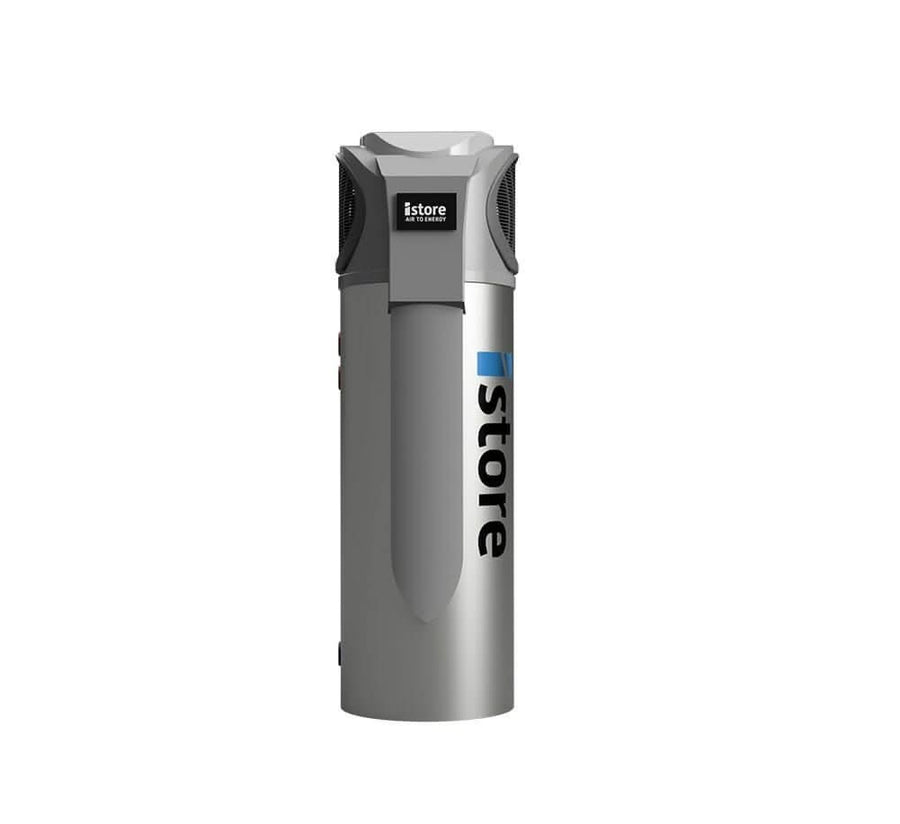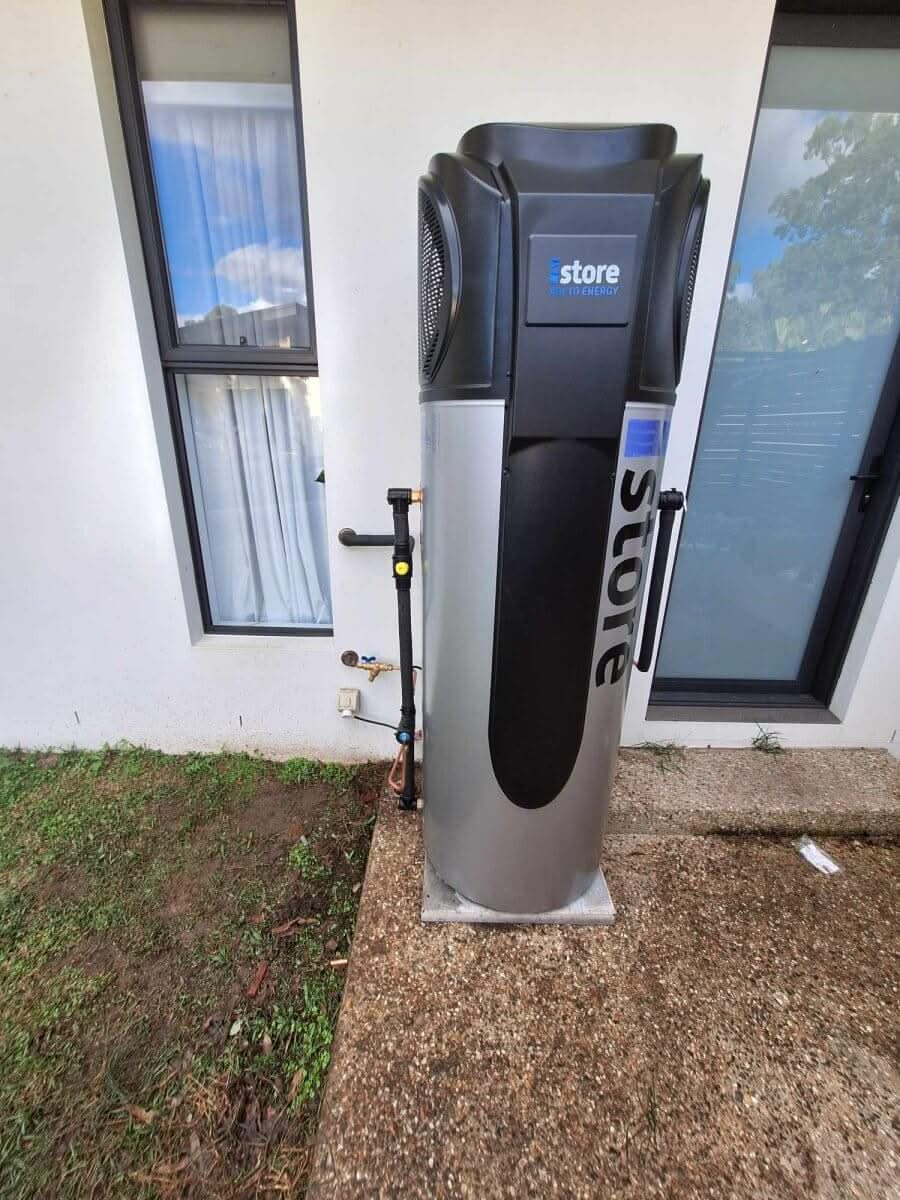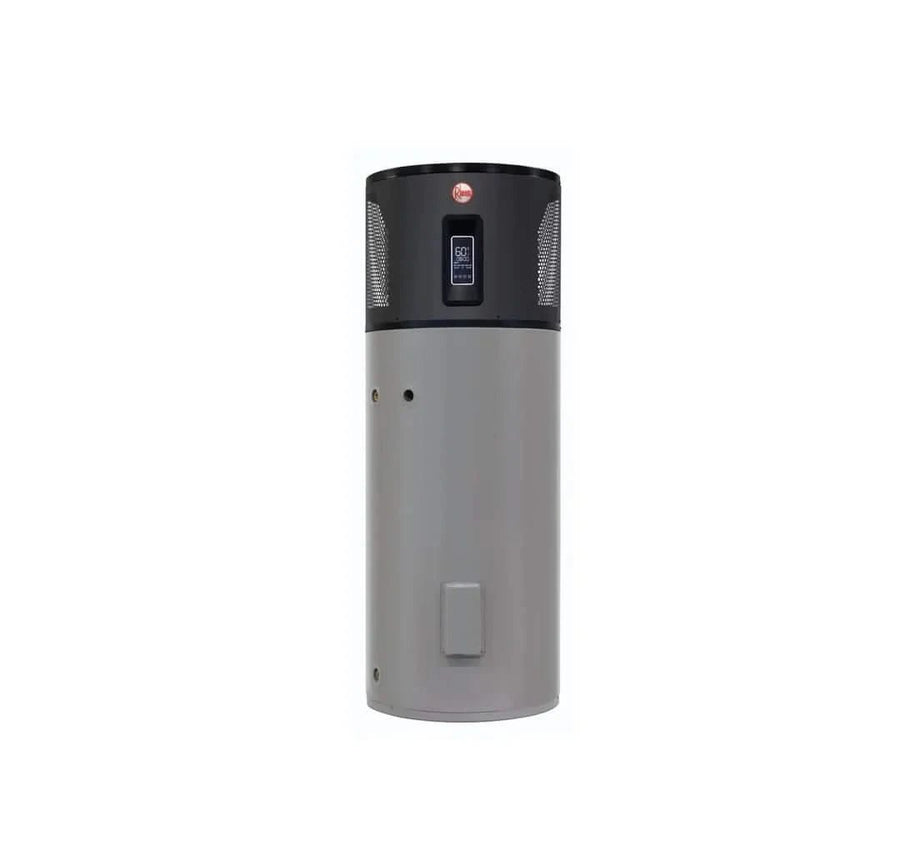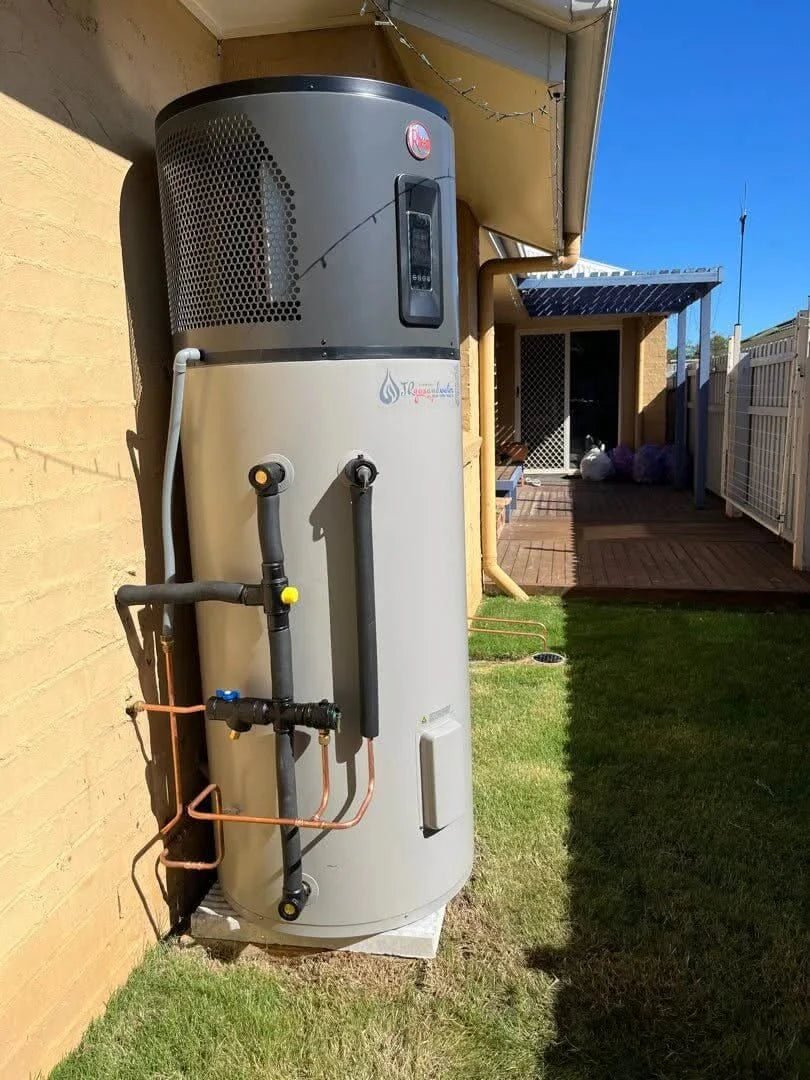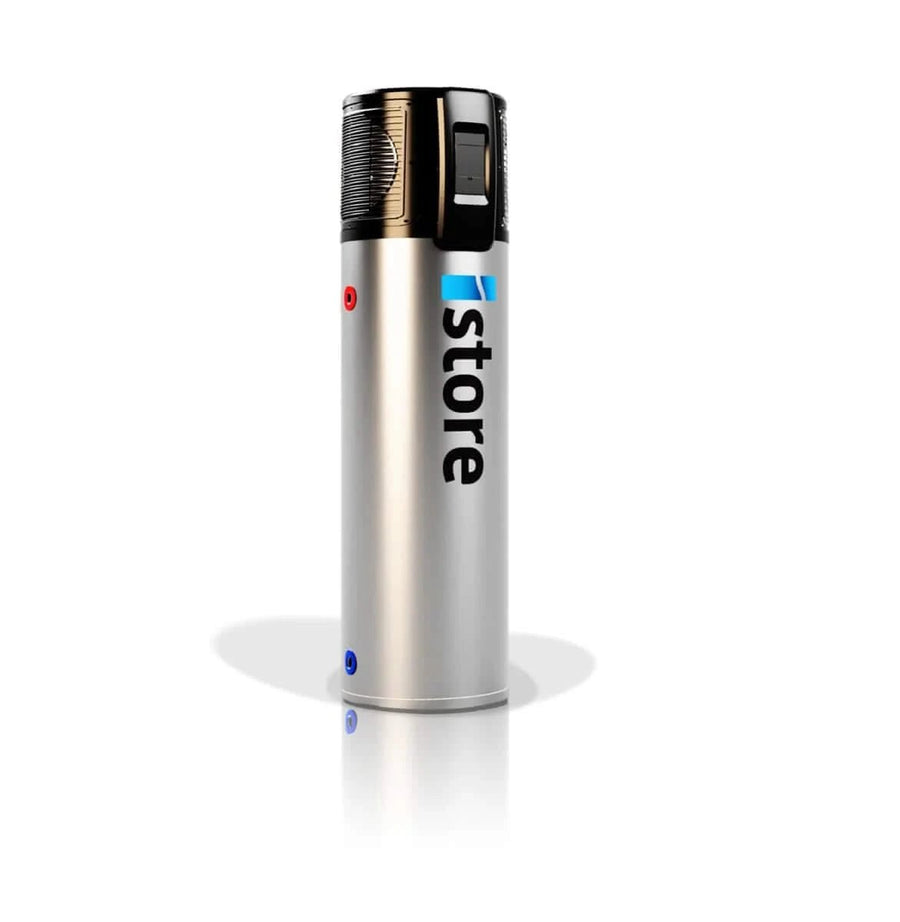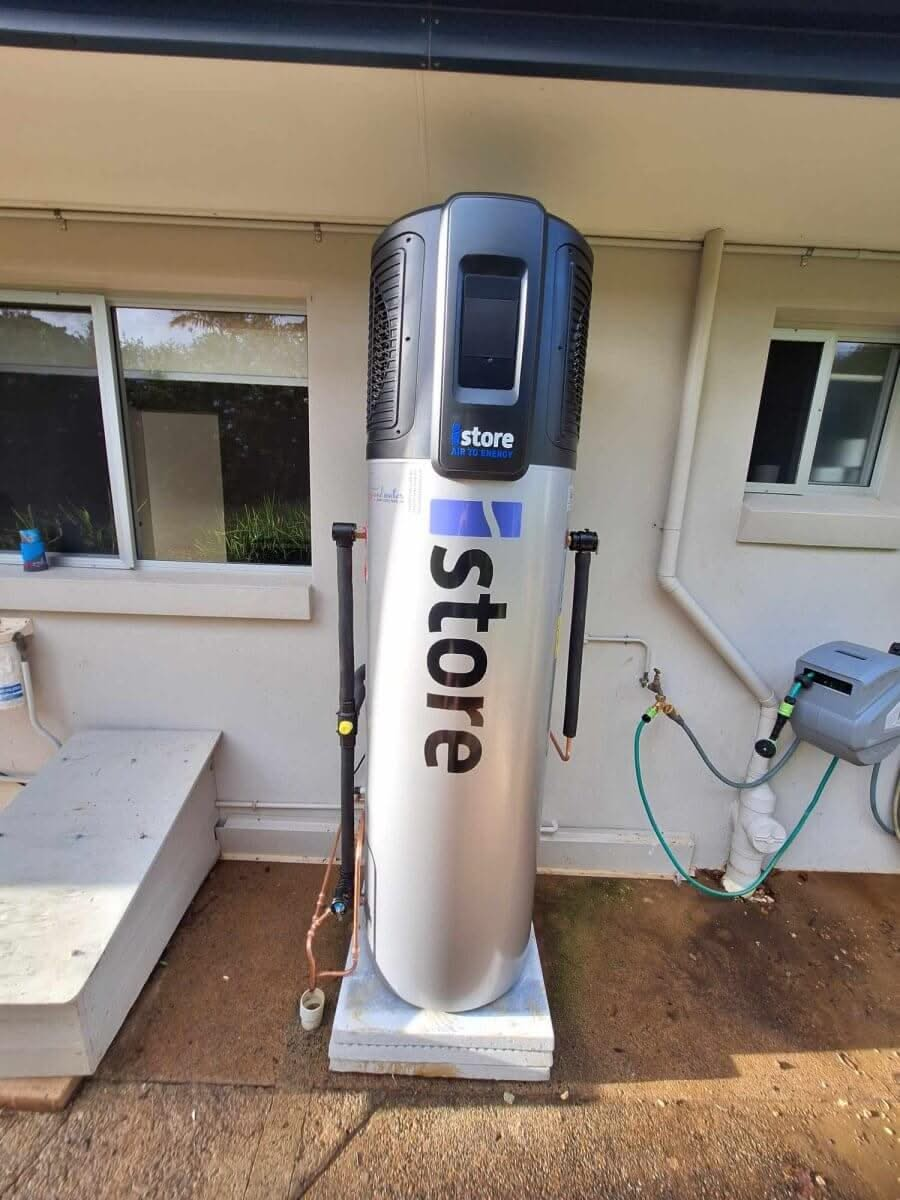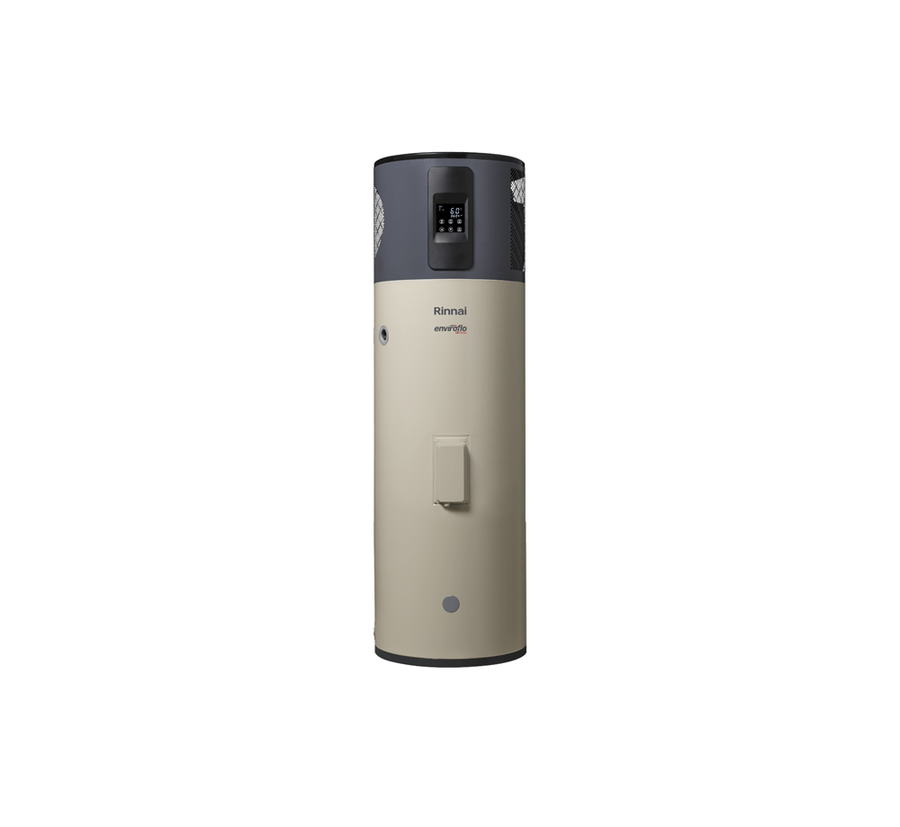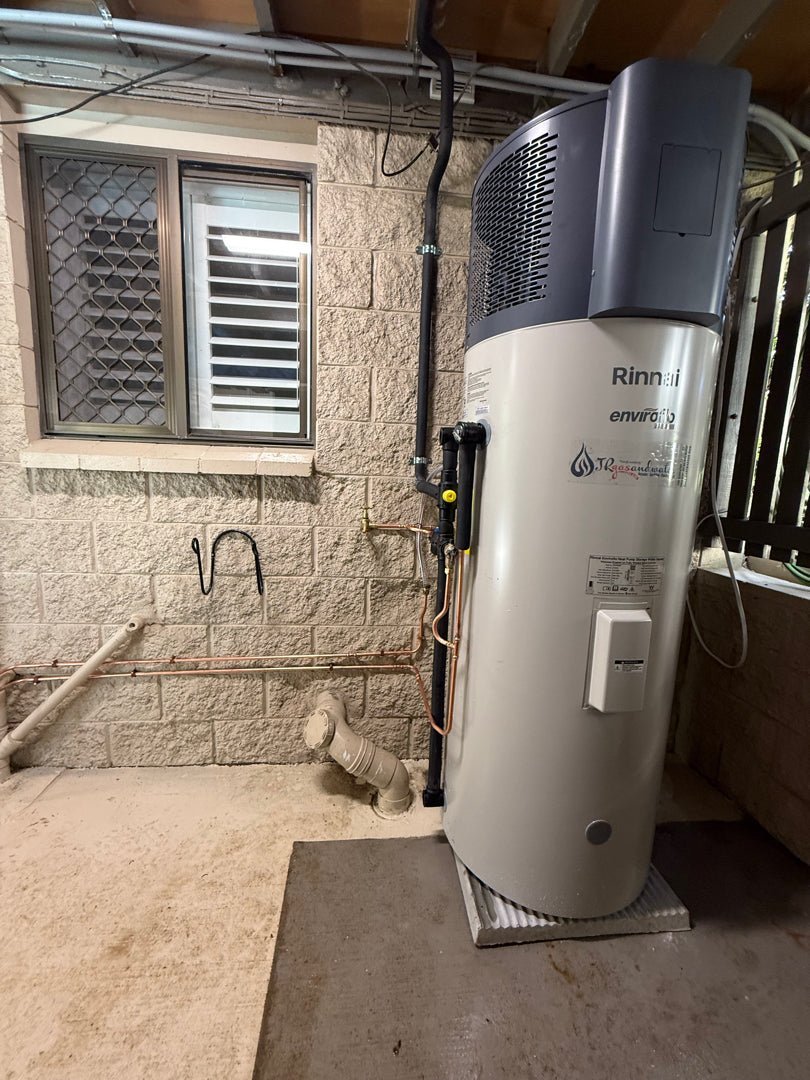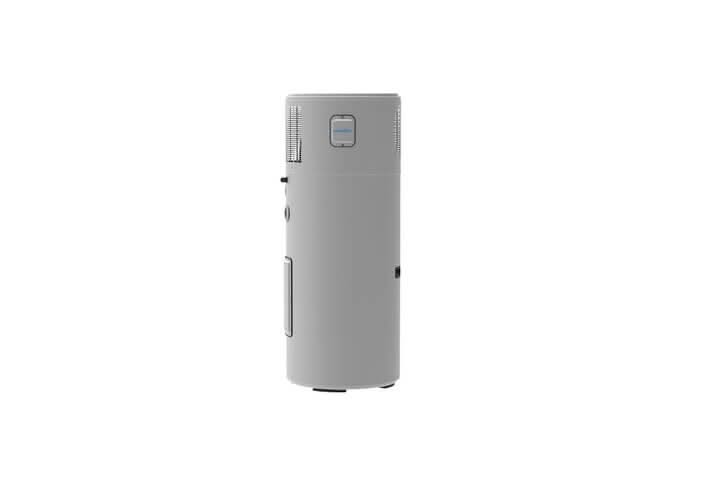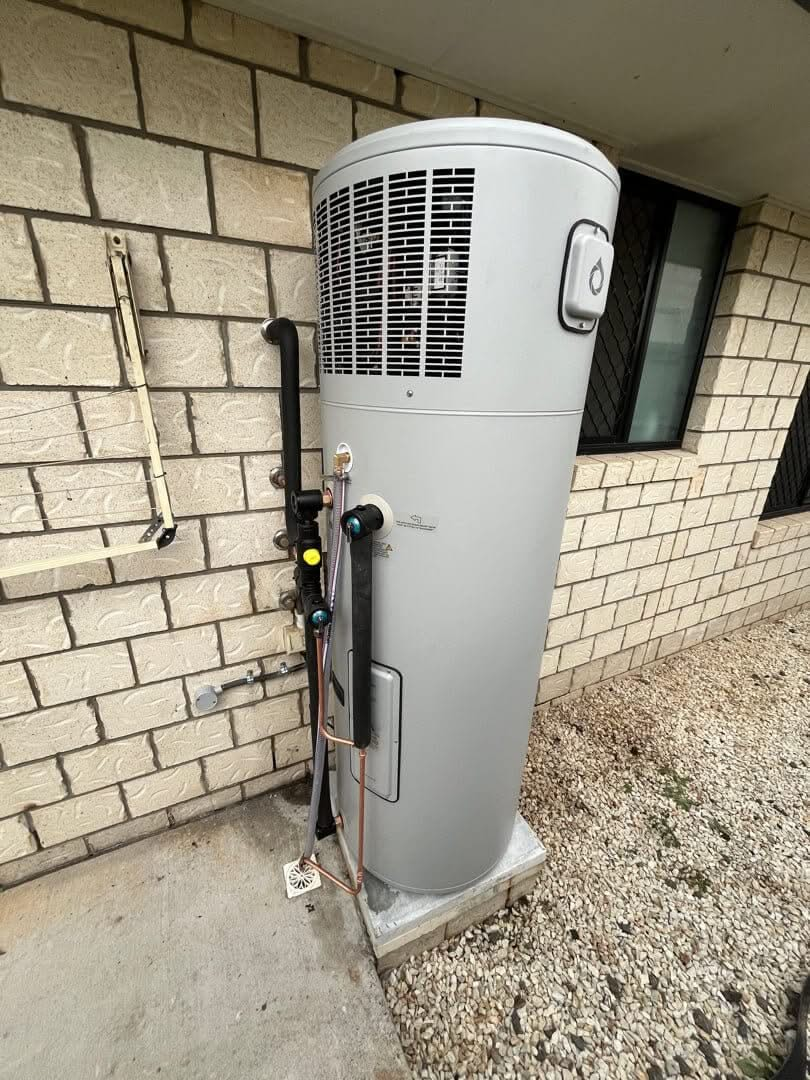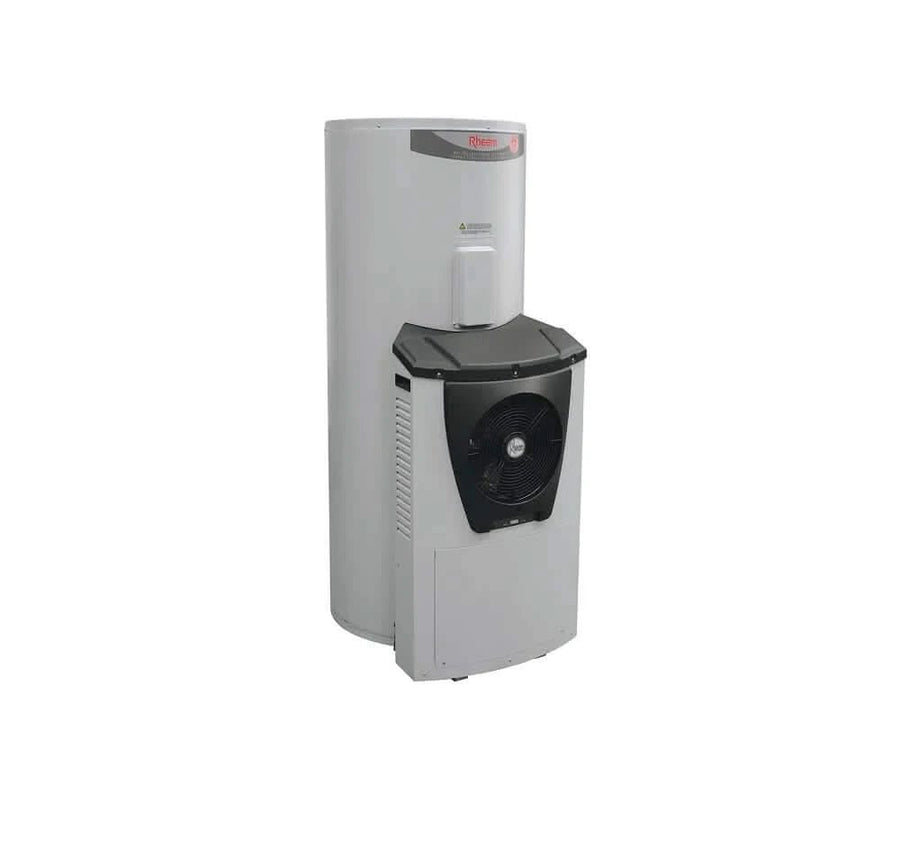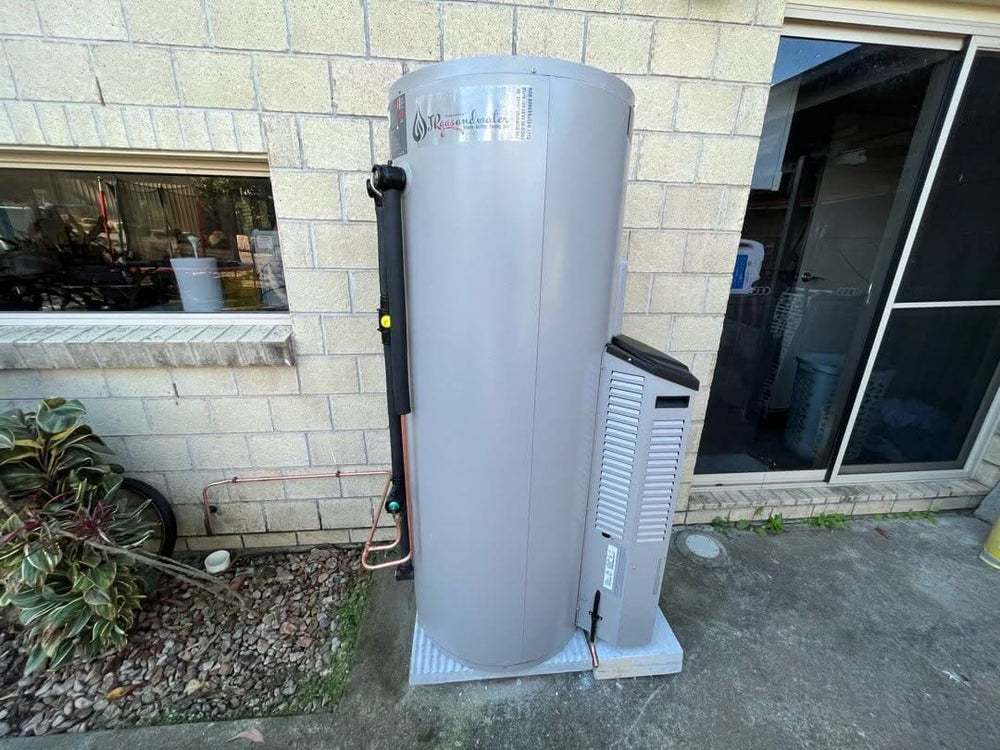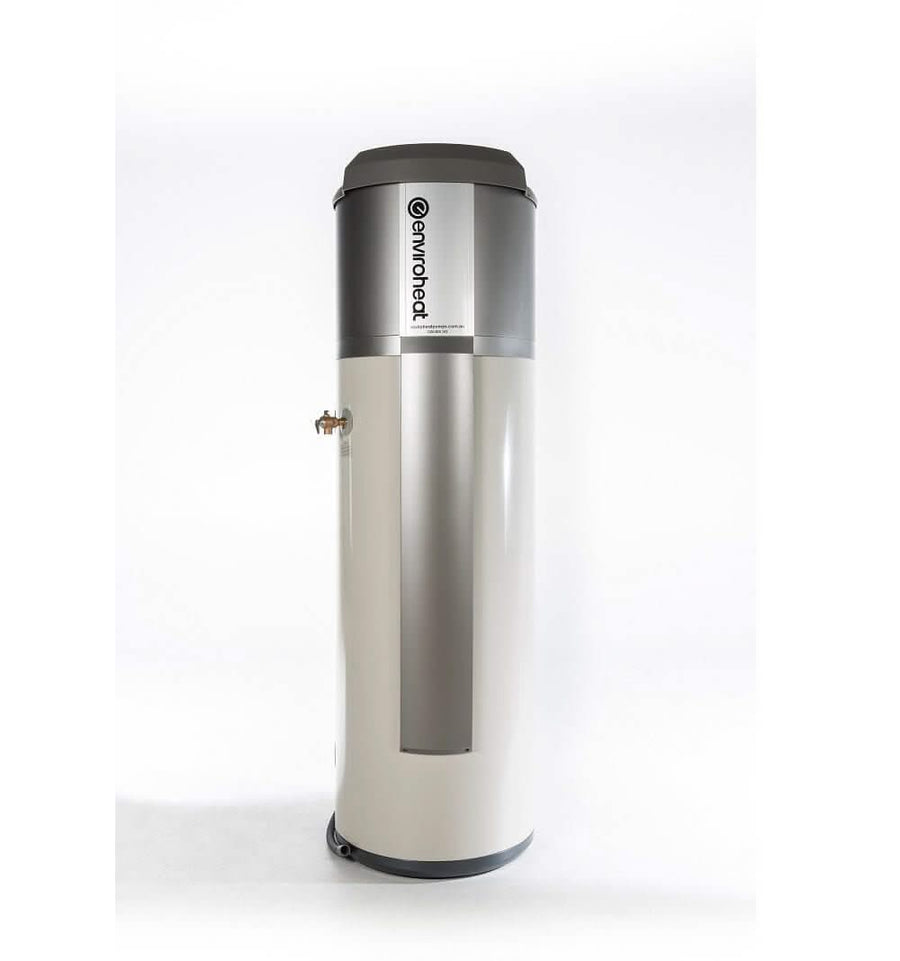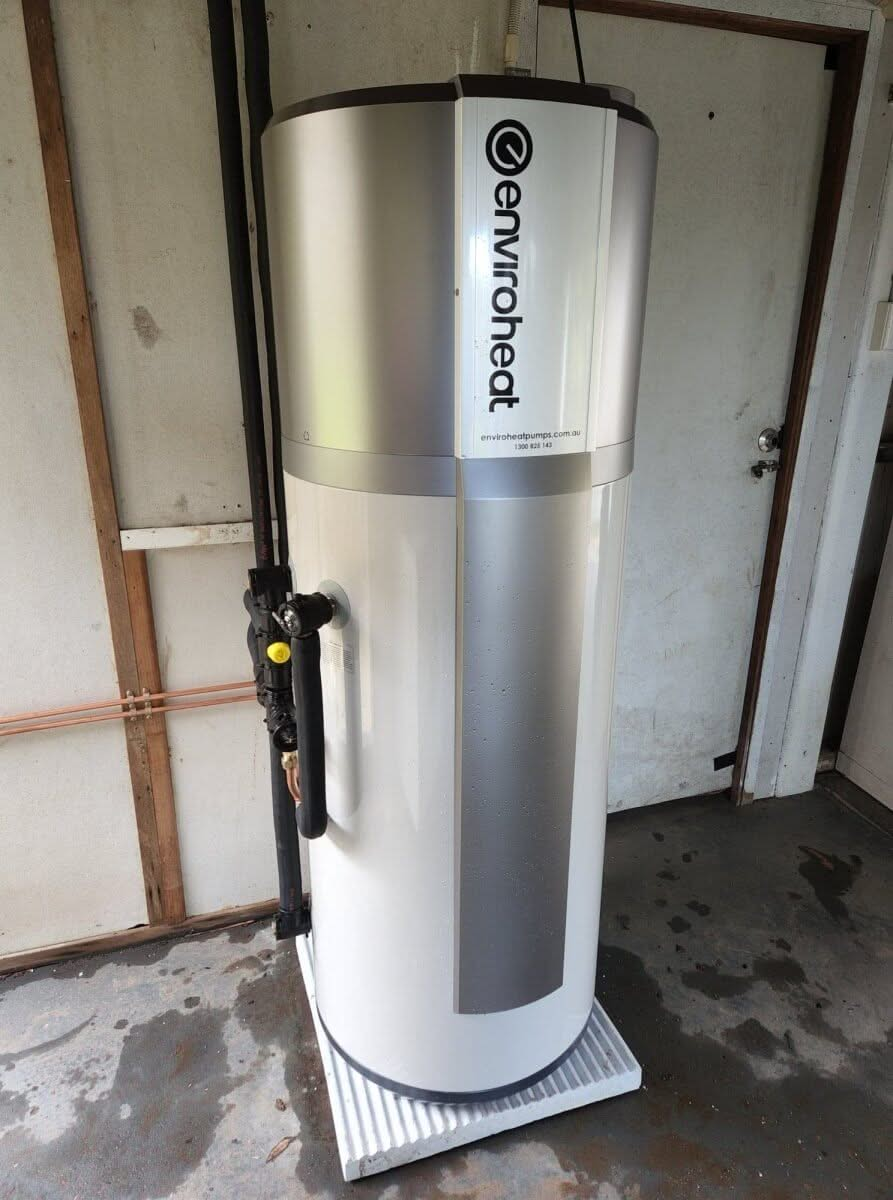Upgrade to a Heat Pump Hot Water System – Supplied & Installed
Looking for an energy-efficient and sustainable hot water solution? A heat pump hot water system is one of the most cost-effective and environmentally friendly ways to heat water in your home. By extracting heat from the air, heat pump systems use up to 75% less electricity than conventional water heaters—helping you slash energy bills while reducing your carbon footprint.
✅ Lower Energy Costs – Save hundreds per year on electricity bills
✅ Eco-Friendly – Reduces carbon emissions by using renewable heat from the air
✅ Long Lifespan – Lasts 15-20 years with proper maintenance
✅ Government Rebates Available – STCs & state-based incentives can reduce upfront costs
✅ Quiet & Efficient – Operates in temperatures as low as -10°C
💡 Upgrade to a heat pump hot water system and enjoy reliable, affordable, and sustainable hot water!
🌡️ What is a Heat Pump Hot Water System?
A heat pump hot water system is an energy-efficient alternative to traditional electric and gas water heaters. Instead of directly heating water, a heat pump extracts heat from the surrounding air and transfers it into the water storage tank—just like a reverse air conditioner.
How It Works:
1️⃣ Air is drawn into the system through an evaporator coil.
2️⃣ The refrigerant absorbs heat, turning into gas.
3️⃣ A compressor pressurizes the gas, increasing the temperature.
4️⃣ The condenser transfers heat from the gas to the water.
5️⃣ Cooled refrigerant returns to liquid form, and the cycle repeats.
🔗 [Find the Best Heat Pump for Your Home]
💧 Why Choose a Heat Pump Hot Water System?
✔ Up to 75% Less Energy Consumption – Compared to conventional electric water heaters.
✔ Consistent Hot Water Supply – Works in all weather conditions, even at -10°C.
✔ Lower Running Costs – Saves up to 65% on hot water energy bills.
✔ Eco-Friendly Technology – Reduces carbon footprint and supports a sustainable lifestyle.
✔ Government Rebates Available – Eligible for STC rebates & state-based incentives.
💡 A heat pump is one of the best long-term investments for reducing energy costs while maintaining a reliable hot water supply.
⚡ Heat Pump vs. Other Hot Water Systems
| Feature |
Heat Pump |
Electric Storage |
Gas Hot Water |
Solar Hot Water |
| Energy Efficiency |
✅ Very High |
❌ Low |
❌ Medium |
✅ Very High |
| Running Costs |
✅ Low |
❌ High |
✅ Medium |
✅ Very Low |
| Eco-Friendliness |
✅ Excellent |
❌ Poor |
❌ Moderate |
✅ Best |
| Installation Complexity |
✅ Easy |
✅ Easy |
❌ Requires Gas |
❌ Requires Solar Panels |
| Best For |
🏠 Homes wanting low bills & eco-friendly heating
|
🏠 Budget installations |
🏠 Gas-powered homes |
☀️ Solar-powered homes |
💡 For homeowners looking for the most energy-efficient and cost-effective solution, a heat pump hot water system is the best choice.
🔗 [Compare Heat Pump Hot Water Systems]
🔧 Choosing the Right Heat Pump Hot Water System
Selecting the best heat pump system depends on household size, climate, and hot water usage.
Integrated vs. Split System Heat Pumps
✔ Integrated Systems – The heat pump unit sits on top of the storage tank, making installation compact and simple.
✔ Split Systems – The heat pump unit is separate from the storage tank, offering more flexible placement.
What Size Heat Pump Do You Need?
| Household Size |
Recommended Tank Size |
| 1-2 People |
150L - 200L |
| 3-4 People |
250L - 300L |
| 5+ People |
300L+ |
💡 Need help choosing the right size? Our team can recommend the perfect system for your needs.
🔗 [Get Expert Advice on the Best Heat Pump for You]
🛠️ Installation & Maintenance
Where to Install a Heat Pump Hot Water System?
For maximum efficiency, heat pumps should be installed in:
✔ Outdoor areas with good ventilation
✔ Garages or laundries with consistent temperatures
✔ Shaded spaces to prevent overheating
Unlike solar hot water systems, heat pumps don’t require roof space, making them more versatile.
Maintenance Tips for a Long-Lasting System
✔ Clean air filters every 3-6 months for optimal airflow.
✔ Check refrigerant levels annually to maintain efficiency.
✔ Flush the system periodically to prevent sediment buildup.
✔ Replace the sacrificial anode every 5 years to protect the tank.
💡 Regular maintenance extends the lifespan of your heat pump system, ensuring reliable performance for up to 20 years.
🔗 [Book a Professional Heat Pump Installation]
💰 Heat Pump Costs & Government Rebates
💲 How Much Does a Heat Pump Cost?
Heat pump hot water systems typically cost between $2,500 - $5,500, including installation. However, government rebates can significantly lower the cost.
🌱 Available Rebates & Incentives
✔ Small-Scale Technology Certificates (STCs) – Federal rebates for heat pump hot water systems
✔ State-Based Incentives – Additional rebates available in QLD, NSW, VIC & SA
✔ Off-Peak Tariffs – Reduce running costs by heating water during non-peak hours
💡 Claim rebates and enjoy huge savings on your heat pump installation!
🔗 [Check Available Rebates for Your Area]
☀️ Maximize Efficiency with Solar
Pairing a heat pump hot water system with solar panels allows homeowners to maximize energy efficiency and reduce electricity costs even further.
Benefits of Solar-Compatible Heat Pumps:
✔ Increased savings by using free solar energy
✔ Lower carbon footprint with renewable power
✔ Potential for energy independence with solar batteries
💡 A heat pump powered by solar is one of the most cost-effective and sustainable ways to heat water!
🔗 [Learn More About Solar-Compatible Heat Pumps]
❓ Frequently Asked Questions
🔹 How long does a heat pump hot water system last?
✔ With proper maintenance, heat pump systems last 15-20 years.
🔹 Do heat pumps work in cold climates?
✔ Yes! Modern heat pumps operate efficiently in temperatures as low as -10°C.
🔹 Are heat pumps noisy?
✔ No, modern heat pumps are designed for quiet operation, typically under 50 dB.
🔹 What’s the difference between a heat pump and solar hot water?
✔ Heat pumps extract heat from the air, while solar hot water systems use direct sunlight.
💡 Still have questions? Our experts are here to help!
🔗 [Get Expert Advice on Heat Pump Systems]
🚀 Get Your Heat Pump Hot Water System Installed Today!
Upgrade to a heat pump hot water system and start saving on energy bills while reducing your carbon footprint.
🔹 Expert Installation – Fast, professional service in Brisbane & surrounding areas
🔹 Competitive Pricing – Best deals on heat pump hot water systems
🔹 Government Rebates Available – Slash upfront costs with STC incentives
💡 Enjoy reliable, energy-efficient hot water with a heat pump today!







